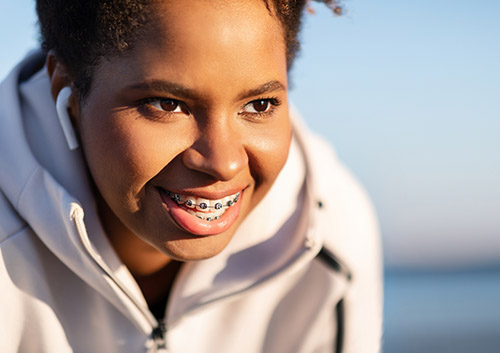Five Clues That It’s Time to Replace Your Toothbrush
January 21st, 2026

Your dashboard lights up when your car needs an oil change. Your family smoke detector beeps when you need to switch out the batteries. But when it’s time to replace your toothbrush, you’re on your own. Luckily, there are several not-too-subtle clues that you should be shopping for a new model.
- Fraying
Is your toothbrush looking a bit scruffy? Do those once orderly bristles look like they have the toothbrush equivalent of bed head? Have some bristles vanished altogether? Time to retire that toothbrush. Once the bristles are frayed, you just can’t reach plaque as effectively, especially where it likes to hide between the teeth.
Are you prematurely fraying? You could be brushing too hard. Overbrushing can injure delicate gum tissue, cause wear and tear to tooth enamel, and even damage your braces. If you find your brush fraying after only a few weeks of use, you might be using too much force. Remember, plaque is a sticky film, but it’s a soft sticky film. Ask us for advice on just how hard you need—or don’t need—to brush.
- Odor
This one really goes without saying—no one wants an aromatic toothbrush! How to make sure your toothbrush is fresh and clean?
Always rinse carefully after you brush. This will get rid of any toothpaste, bits of food, or other particles left on your brush.
Let your toothbrush air dry. It might seem more hygienic to keep your brush covered in a bathroom setting, but a closed, moist container is a perfect breeding ground for germs. Don’t let them make a home in your bristles!
- Illness
A cold or a bacterial infection (like strep throat) is no fun. But now that you’re feeling better, it might be time to throw out your toothbrush. The chances of re-infection are very low, unless your immune system is compromised, but this is a perfect opportunity to replace your brush with a fresh, germ-free model.
And if you share your toothbrush, or if you store it right next to a family member’s (which you really shouldn’t do, for this very reason), germs get shared, too. Quarantine your brush while you’re ill, and replace it once you’re out and about.
- Discomfort
Bigger isn’t necessarily better. A brush with a head that’s too big won’t allow you to get into those small spaces in your mouth where plaque likes to collect. And when you are trying to clean around brackets and wires, a regular brush might be a problem. Ask Dr. Pope for suggestions for the best tools for clean and comfortable brushing.
Also, harder doesn’t mean more effective. A brush with hard bristles can cause damage to your gums and enamel. We almost always recommend soft-bristled brushes for this every reason.
There are so many styles of brush out there, you’re bound to find the perfect fit with a little trial and error. Or ask us for suggestions the next time you’re at our Flossmoor and New Lenox, IL office for an adjustment!
- You’ve Passed the “Best By” Date
Because of its durable construction, your toothbrush can last a long, long time. But no matter how comfortable and effective your toothbrush is right now, it was never meant to go through life with you. Bristles break down over a period of a few months, and just don’t clean as effectively. Your brush should be changed every three months, and this includes changing the head on your electric toothbrush. And because you wear braces, you’re brushing more often, so that three month lifespan might be stretching it.
Unfortunately, you don’t have a flashing light or annoying beep to remind you when it’s time to change brushes, so you’ll have to devise your own reminders. Reminder apps, calendar notes, the first day of a new season—use whatever works best for you.
Don’t ignore the clues your toothbrush is leaving you. Replacing your brush whenever it’s necessary helps guarantee that the time you spend cleaning your teeth and gums will lead to confident, healthy smiles. Case closed!





 Website Powered by Sesame 24-7™
Website Powered by Sesame 24-7™